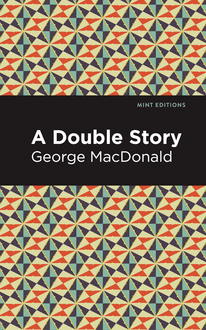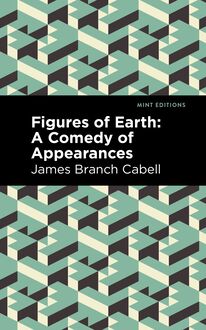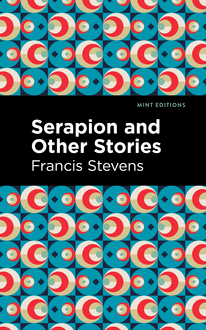-
 Univers
Univers
-
 Ebooks
Ebooks
-
 Livres audio
Livres audio
-
 Presse
Presse
-
 Podcasts
Podcasts
-
 BD
BD
-
 Documents
Documents
-
- Cours
- Révisions
- Ressources pédagogiques
- Sciences de l’éducation
- Manuels scolaires
- Langues
- Travaux de classe
- Annales de BEP
- Etudes supérieures
- Maternelle et primaire
- Fiches de lecture
- Orientation scolaire
- Méthodologie
- Corrigés de devoir
- Annales d’examens et concours
- Annales du bac
- Annales du brevet
- Rapports de stage
La lecture à portée de main
Vous pourrez modifier la taille du texte de cet ouvrage
Découvre YouScribe en t'inscrivant gratuitement
Je m'inscrisDécouvre YouScribe en t'inscrivant gratuitement
Je m'inscrisEn savoir plus
Vous pourrez modifier la taille du texte de cet ouvrage
En savoir plus

Description
Jimbo: A Fantasy (1909) is a novel by Algernon Blackwood. Having already established himself as a promising short story writer, Blackwood published his debut novel at the age of 40. A lifelong occultist, Blackwood was interested in the fine line between the human and spiritual realms, often incorporating supernatural elements into his work. Jimbo: A Fantasy is a story of a young boy’s out of body experience after sustaining a terrible injury, a narrative that explores the vibrant worlds we wake to in our dreams. “Jimbo had fallen on his head. Inside that head lay the mass of highly sensitive matter called the brain, on which were recorded, of course, the impressions of everything that had yet come to him in life. […] [H]e would have to wander, lost and lonely, through the comparative chaos of disproportioned visions, generally known as the region of delirium, until the doctor, assisted by mother nature, restored him once more to normal consciousness.” Unsupervised, Jimmy wanders into the fields near his home. Charged by an angry bull, he falls and strikes his head, losing consciousness for an indeterminate period of time. As his body struggles to stay alive, his mind creates a world of its own, a haunting realm of dreams both fantastic and somehow realer, more vibrant, then the world he seems to have lost. Jimbo: A Fantasy is a story for children and adults alike, a novel that poses timeless questions regarding the nature of our existence, both upon earth and beyond. With a beautifully designed cover and professionally typeset manuscript, this edition of Algernon Blackwood’s Jimbo: A Fantasy is a classic work of British literature reimagined for modern readers.
Sujets
Informations
| Publié par | Mint Editions |
| Date de parution | 28 mai 2021 |
| Nombre de lectures | 0 |
| EAN13 | 9781513288130 |
| Langue | English |
| Poids de l'ouvrage | 3 Mo |
Informations légales : prix de location à la page 0,0400€. Cette information est donnée uniquement à titre indicatif conformément à la législation en vigueur.
Extrait
Jimbo
A Fantasy
Algernon Blackwood
Jimbo: A Fantasy was first published in 1909.
This edition published by Mint Editions 2021.
ISBN 9781513283111 | E-ISBN 9781513288130
Published by Mint Editions®
minteditionbooks .com
Publishing Director: Jennifer Newens
Design & Production: Rachel Lopez Metzger
Project Manager: Micaela Clark
Typesetting: Westchester Publishing Services
C ONTENTS I. “R ABBITS” II. M ISS L AKE C OMES—AND G OES III. T HE S HOCK IV. O N THE E DGE OF U NCONSCIOUSNESS V. I NTO THE E MPTY H OUSE VI. H IS C OMPANION IN P RISON VII. T HE S PELL OF THE E MPTY H OUSE VIII. T HE G ALLERY OF A NCIENT M EMORIES IX. T HE M EANS OF E SCAPE X. T HE P LUNGE XI. T HE F IRST F LIGHT XII. T HE F OUR W INDS XIII. P LEASURES OF F LIGHT XIV. A N A DVENTURE XV. T HE C ALL OF THE B ODY XVI. P REPARATION XVII. O FF! XVIII. H OME
I
“ R ABBITS”
J imbo’s governess ought to have known better—but she didn’t. If she had, Jimbo would never have met with the adventures that subsequently came to him. Thus, in a roundabout sort of way, the child ought to have been thankful to the governess; and perhaps, in a roundabout sort of way, he was. But that comes at the far end of the story, and is doubtful at best; and in the meanwhile the child had gone through his suffering, and the governess had in some measure expiated her fault; so that at this stage it is only necessary to note that the whole business began because the Empty House happened to be really an Empty House—not the one Jimbo’s family lived in, but another of which more will be known in due course.
Jimbo’s father was a retired Colonel, who had married late in life, and now lived all the year round in the country; and Jimbo was the youngest child but one. The Colonel, lean in body as he was sincere in mind, an excellent soldier but a poor diplomatist, loved dogs, horses, guns and riding-whips. He also really understood them. His neighbours, had they been asked, would have called him hard-headed, and so far as a soft-hearted man may deserve the title, he probably was. He rode two horses a day to hounds with the best of them, and the stiffer the country the better he liked it. Besides his guns, dogs and horses, he was also very fond of his children. It was his hobby that he understood them far better than his wife did, or than any one else did, for that matter. The proper evolution of their differing temperaments had no difficulties for him. The delicate problems of child-nature, which defy solution by nine parents out of ten, ceased to exist the moment he spread out his muscular hand in a favourite omnipotent gesture and uttered some extraordinarily foolish generality in that thunderous, good-natured voice of his. The difficulty for himself vanished when he ended up with the words, “Leave that to me, my dear; believe me, I know best!” But for all else concerned, and especially for the child under discussion, this was when the difficulty really began.
Since, however, the Colonel, after this chapter, mounts his best hunter and disappears over a high hedge into space so far as our story is concerned, any further delineation of his wholesome but very ordinary type is unnecessary.
One winter’s evening, not very long after Christmas, the Colonel made a discovery. It alarmed him a little; for it suggested to his cocksure mind that he did not understand all his children as comprehensively as he imagined.
Between five o’clock tea and dinner—that magic hour when lessons were over and the big house was full of shadows and mystery—there came a timid knock at the study door.
“Come in,” growled the soldier in his deepest voice, and a little girl’s face, wreathed in tumbling brown hair, poked itself hesitatingly through the opening.
The Colonel did not like being disturbed at this hour, and everybody in the house knew it; but the spell of Christmas holidays was still somehow in the air, and the customary order was not yet fully re-established. Moreover, when he saw who the intruder was, his growl modified itself into a sort of common sternness that yet was not cleverly enough simulated to deceive the really intuitive little person who now stood inside the room.
“Well, Nixie, child, what do you want now?”
“Please, father, will you—we wondered if—”
A chorus of whispers issued from the other side of the door:
“Go on, silly!”
“Out with it!”
“You promised you would, Nixie.”
“… if you would come and play Rabbits with us?” came the words in a desperate rush, with laughter not far behind.
The big man with the fierce white moustaches glared over the top of his glasses at the intruders as if amazed beyond belief at the audacity of the request.
“Rabbits!” he exclaimed, as though the mere word ought to have caused an instant explosion. “Rabbits!”
“Oh, please do.”
“Rabbits at this time of night!” he repeated. “I never heard of such a thing. Why, all good rabbits are asleep in their holes by now. And you ought to be in yours too by rights, I’m sure.”
“We don’t sleep in holes, father,” said the owner of the brown hair, who was acting as leader.
“And there’s still a nour before bedtime, really ,” added a voice in the rear.
The big man slowly put his glasses down and looked at his watch. He looked very savage, but of course it was all pretence, and the children knew it. “If he was really cross he’d pretend to be nice,” they whispered to each other, with merciless perception.
“Well—” he began. But he who hesitates, with children, is lost. The door flung open wide, and the troop poured into the room in a medley of long black legs, flying hair and outstretched hands. They surrounded the table, swarmed upon his big knees, shut his stupid old book, tried on his glasses, kissed him, and fell to discussing the game breathlessly all at once, as though it had already begun.
This, of course, ended the battle, and the big man had to play the part of the Monster Rabbit in a wonderful game of his own invention. But when, at length, it was all over, and they were gathered panting round the fire of blazing logs in the hall, the Monster Rabbit—the only one with any breath at his command—looked up and spoke.
“Where’s Jimbo?” he asked.
“Upstairs.”
“Why didn’t he come and play too?”
“He didn’t want to.”
“Why? What’s he doing?”
Several answers were forthcoming.
“Nothing in p’tickler.”
“Talking to the furniture when I last saw him.”
“Just thinking, as usual, or staring in the fire.”
None of the answers seemed to satisfy the Monster Rabbit, for when he kissed them a little later and said good-night, he gave orders, with a graver face, for Jimbo to be sent down to the study before he went to bed. Moreover, he called him “James,” which was a sure sign of parental displeasure.
“James, why didn’t you come and play with your brothers and sisters just now?” asked the Colonel, as a dreamy-eyed boy of about eight, with a mop of dark hair and a wistful expression, came slowly forward into the room.
“I was in the middle of making pictures.”
“Where—what—making pictures?”
“In the fire.”
“James,” said the Colonel in a serious tone, “don’t you know that you are getting too old now for that sort of thing? If you dream so much, you’ll fall asleep altogether some fine day, and never wake up again. Just think what that means!”
The child smiled faintly and moved up confidingly between his father’s knees, staring into his eyes without the least sign of fear. But he said nothing in reply. His thoughts were far away, and it seemed as if the effort to bring them back into the study and to a consideration of his father’s words was almost beyond his power.
“You must run about more,” pursued the soldier, rubbing his big hands together briskly, “and join your brothers and sisters in their games. Lie about in the summer and dream a bit if you like, but now it’s winter, you must be more active, and make your blood circulate healthily,—er—and all that sort of thing.”
The words were kindly spoken, but the voice and manner rather deliberate. Jimbo began to look a little troubled, as his father watched him.
“Come now, little man,” he said more gently, “what’s the matter, eh?” He drew the boy close to him. “Tell me all about it, and what it is you’re always thinking about so much.”
Jimbo brought back his mind with a tremendous effort, and said, “I don’t like the winter. It’s so dark and full of horrid things. It’s all ice and shadows, so—so I go away and think of what I like, and other places—”
“Nonsense!” interrupted his father briskly; “winter’s a capital time for boys. What in the world d’ye mean, I wonder?”
He lifted the child on to his knee and stroked his hair, as though he were patting the flank of a horse. Jimbo took no notice of the interruption or of the caress, but went on saying what he had to say, though with eyes a little more clouded.
“Winter’s like going into a long black tunnel, you see. It’s downhill to Christmas, of course, and then uphill all the way to the summer holidays. But the uphill part’s so slow that—”
“Tut, tut!” laughed the Colonel in spite of himself; “you mustn’t have such thoughts. Those are a baby’s notions. They’re silly, silly, silly.”
“Do you really think so, father?” continued the boy, as if politeness demanded some recognition of his father’s remarks, but otherwise anxious only to say what was in his mind. “You wouldn’t think them silly if you really knew. But, of course, there’s no one to tell you in the stable, so you can’t know. You’ve never seen the funny big people rushing past you and laughing through their long hair when the wind blows so loud. I know several of them almost to speak to, but you hear only wind. And the other things with tiny legs that skate up and down the slippery moonbeams, without ever tumbling off—they aren’t silly a bit, only they don’t like dogs and noise. And I’ve seen the furniture”—he pronounced it furchinur—“dancing about in the day-nursery when it thought it was alone, and I’ve heard it talking at nigh
-
 Univers
Univers
-
 Ebooks
Ebooks
-
 Livres audio
Livres audio
-
 Presse
Presse
-
 Podcasts
Podcasts
-
 BD
BD
-
 Documents
Documents
-
Jeunesse
-
Littérature
-
Ressources professionnelles
-
Santé et bien-être
-
Savoirs
-
Education
-
Loisirs et hobbies
-
Art, musique et cinéma
-
Actualité et débat de société
-
Jeunesse
-
Littérature
-
Ressources professionnelles
-
Santé et bien-être
-
Savoirs
-
Education
-
Loisirs et hobbies
-
Art, musique et cinéma
-
Actualité et débat de société
-
Actualités
-
Lifestyle
-
Presse jeunesse
-
Presse professionnelle
-
Pratique
-
Presse sportive
-
Presse internationale
-
Culture & Médias
-
Action et Aventures
-
Science-fiction et Fantasy
-
Société
-
Jeunesse
-
Littérature
-
Ressources professionnelles
-
Santé et bien-être
-
Savoirs
-
Education
-
Loisirs et hobbies
-
Art, musique et cinéma
-
Actualité et débat de société
- Cours
- Révisions
- Ressources pédagogiques
- Sciences de l’éducation
- Manuels scolaires
- Langues
- Travaux de classe
- Annales de BEP
- Etudes supérieures
- Maternelle et primaire
- Fiches de lecture
- Orientation scolaire
- Méthodologie
- Corrigés de devoir
- Annales d’examens et concours
- Annales du bac
- Annales du brevet
- Rapports de stage




















